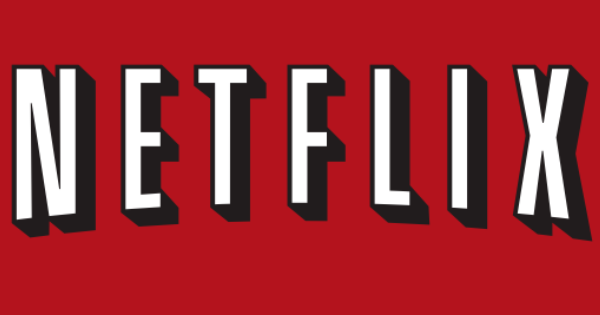Broadcasting
Netflix Celebrates Africa Month with New Collection of Local Stories

Rich in culture and diversity, Africa has always been at the centre of the world and history tells us, the original name of Africa was Alkebulan, which translates into “mother of mankind” or “garden of Eden”.

The wealth of natural resources, the diversity of cultures that exist, and the traditions passed on from generation to generation are what make us who we are.
From being the world’s hottest continent to being home to more than 1.2 billion people spread over 54 countries who speak more than 2,000 different languages, there’s a multitude of unique and rich stories to be told from, and about, the continent and its people.
That’s why this month of May, Netflix is celebrating these stories and storytellers in anticipation of Africa Day on 25 May through a new collection titled ‘From Cape to Cairo’.
The ‘From Cape to Cairo’ collection, comes just in time as Netflix also recently unveiled a new podcast – African time, Never late, and will feature Netflix’s latest African series, Blood Sisters (Nigeria) and Savage Beauty (South Africa) — both launching in May!
Both the Podcast and the Collection aim to showcase the continent’s creativity and talent. The collection will include a wide variety of featured content including the recently-launched African films Silverton Siege and Man of God.
Also in the collection will be South African true-crime docuseries Senzo: Murder of a Soccer Star; the much-loved reality series Young Famous & Africa, plus Netflix series’ including Finding Ola, Paranormal and Secrets of The Saqqara Tomb from Egypt to Queen Sono; Blood & Water JIVA; How To Ruin Christmas and Kings of Joburg from South Africa and of course the critically acclaimed King of Boys: Return Of The King from Nigeria.
Also in the collection are international films and series featuring talents of African descent from the African diaspora including Meet the Adebanjos, African Doctor, Shine Your Eyes, Dọlápọ̀ is Fine, Yasuke, and more.
Every year, a day is set aside to honour Africa’s rich cultural heritage but ideally, our continent, and our creativity is worthy of celebration, all year round. That’s why the “African Time— Never Late” Podcast, hosted by South Africa’s Andy Maqondwana and Zweli Mbhele will feature Netflix’s on-screen and behind-the-screen talent like Nox Dlamini (actress – Silverton Siege), Jayan Moodley (director – Tripping with the Kandasamys), Retti Ramaphakela (producer/director – How to Ruin Christmas), Jesse Suntele (actor – Savage Beauty), Daniel Effiong (actor – Blood Sisters), Nancy Isime (actress – Blood Sisters), Ini Dima Okojie (actress – Blood Sisters), and Kemi Adetiba (director – King Of Boys) as they share their experiences around diversity and inclusion in the creative industry.
As the African Union deemed 2022 “the year of nutrition”, Netflix is bringing its members a plethora of stories from North, East, West, Central and Southern Africa to feast on. This collection includes rows like ‘Our Music, Our Culture, Our History;’ ‘Award-Winners & Critics’ Favourites;’ ‘African Women Behind the Camera;’ ‘Love Across the Continent;’ ‘Stories From The African Diaspora;’ and more recommendations to help you find your next favorite African series, film or special.
The podcast launches on the 4th of May on our AfricaOnNetflix YouTube channel as well as Apple iTunes and Spotify podcasts globally.
Broadcasting
NIMC rolls out Pre-Enrolment Portal for seamless NIN registration

National Identity Management Commission (NIMC) has launched the NIMC Pre-Enrolment Portal to revolutionise the National Identification Number (NIN) enrolment process, enabling applicants within Nigeria and in the Diaspora to capture biodata online prior to biometric verification at enrolment centres.

NIMC
Accessible via penrol.nimc.gov.ng, the platform allows users to fill enrolment forms, schedule appointments, upload supporting documents securely, and manage personal details directly, thereby slashing congestion, minimising wait times, boosting data accuracy and enhancing overall service efficiency at centres nationwide.
NIMC Director-General and CEO, Engr. (Dr) Abisoye Coker-Odusote, spearheaded the initiative as part of the Commission’s technology-driven strategy to fortify institutional performance, aligning with President Bola Ahmed Tinubu’s Renewed Hope Agenda that emphasises digital transformation, efficient public service delivery and inclusive national development.
Dr Kayode Adegoke, Head of Corporate Communications, highlighted key benefits including simplified biodata handling, confidential data protection through robust security measures, reduced physical centre visits and heightened operational effectiveness, urging all prospective enrollees to adopt the portal for a faster, citizen-friendly experience.[conversation_history]
The move underscores NIMC’s mandate under the NIMC Act No. 23 of 2007 to manage the National Identity Database, issue NINs and foster a reliable digital identity ecosystem vital for national planning, with users advised to complete pre-enrolment online before heading to selected centres for biometrics.
Broadcasting
MultiChoice Talent Factory Calls for Entries Into Fully Funded Film Training Programme

MultiChoice Talent Factory (MTF), a Pan-African film and television training institution, has announced the opening of applications for its 2026 intake.

MultiChoice
The fully funded programme is open to African graduates aspiring to become directors, filmmakers, scriptwriters, producers and storytellers.
According to MultiChoice, the nine-month accredited curriculum combines online learning with intensive in-person training, and is designed to balance theoretical knowledge with practical immersion.
MTF academies are located in Kenya, Nigeria and Zambia, and serve aspiring filmmakers from 14 African countries. Since its inception in 2018, the initiative has trained 296 filmmakers, with graduates producing more than 42 movies aired on DStv, GOtv and Showmax platforms.
Organisers said alumni of the programme have gone on to establish over 50 production companies, while many continue to work within the MultiChoice ecosystem.
Graduates have also won accolades at the Africa Magic Viewers’ Choice Awards, Kalasha Awards, Uganda Film Festival and Women in Film Awards.
Applications for the 2026 intake close on Feb. 27, 2026. Interested candidates can visit https://apo-opa.co/3XW53oE for programme requirements.
Broadcasting
Davido, Babajide Sanwo-Olu, Karl Toriola, Others To Be Honoured At The Most Influential People of African Descent Awards In Lagos

Most Influential People of African Descent (MIPAD) is excited to announce the Lagos Diaspora Experience 2025, a week-long celebration of African art, culture, innovation, and connection, culminating in the End of the Year Awards & Celebration on Sunday, December 21st, 2025, in Lagos, Nigeria.

The Most Influential People of African Descent Awards
This historic occasion marks the first time the world-famous Most Influential 100 Recognition & Awards Ceremony—traditionally held in New York on the sidelines of the United Nations General Assembly (UNGA)—will be hosted in Lagos, Nigeria.
The week will feature events such as Diaspora Day at the Fela Exhibition (Afrobeat Meets Diaspora), Cultural Heritage Day, and Business Leadership Luncheons, all culminating in the awards celebration.
The evening will honor the Best & Brightest of the Year, recognizing exceptional individuals and institutions whose work has advanced Global African Achievement and Black Excellence across business, government, media, culture, and technology.
Key Recognitions for 2025
– Governor of the Year & City of the Year: His Excellency Babajide Sanwo-Olu, Governor of Lagos State, honored alongside Lagos as City of the Year for its global leadership in culture, innovation, tourism, and diaspora engagement.
– Her Excellency Hannatu Musa Musawa, Minister of Art, Culture, Tourism and Creative Economy, will be honoured as Minister of the Year for her contribution to the creative economy’s role in nation branding and cultural diplomacy.
– Most Influential Woman of the Year: Olorì Atúwàtse III, Queen Consort of the Warri Kingdom
– Most Influential Man of the Year: Adewale Tinubu, Group Chief Executive, OANDO
– CEO of the Year: Karl Toriola, Chief Executive Officer of MTN Nigeria; who will deliver a keynote address, recognized for his transformative leadership and impact on Nigeria’s telecommunications and digital economy.
Others include; Karl Toriola of MTN as CEO of the year, Uche Pedro of Bella Naija as Lifestyle Personality Of The Year, Ojy Okpe of Artise News as Most Influential News Anchor Of The Year, Stephanie Busari as Media Executive of the Year, Kayode Okikiolu as Pressman of the year, Davido as Artist of the year and several others.
In celebrating this year’s honorees, Michael Ehindero, Managing Director, Pernod Ricard Nigeria, owners of Martell Cognac, who emerged as Brand Of The Year expressed deep appreciation for the brand’s continued global recognition, saying: “It’s a great reward for the team who’s delivered Martell excellently in Nigeria over the years.
“We say thank you to the teams, we say thank you to our consumers and we say thank you to MIPAD.
“Martell has a lot of promising experiences in the years to come in Nigeria and with this we invite you over to Nigeria to experience Detty December”.
The ceremony will also celebrate the achievements of the Class of 2025 Honorees, alongside past Nigerian honorees who were unable to attend their year of recognition in New York.
“For the first time, we’re bringing our world-famous recognition platform home to celebrate excellence within the Global Africa Family — right here in Lagos,” said Kamil Olufowobi, Founder & Chairman of MIPAD. “This is more than an event; it’s a movement uniting the best of us — connecting, collaborating, and working together to change the world.”
Event Details
📍 Lagos, Nigeria
– Friday, Dec 19 – #DettyDec Diaspora Day at Fela Exhibition FREE
– Sunday, Dec 21 – End of Year Recognition & Award Ceremony STRICTLY BY INVITATION
🎟️ RSVP: https://rsvp.oakenevents.com/mipad

 E-Business2 days ago
E-Business2 days agoNigeria Police Arrest Okitipi, Nigerian Allegedly Linked to Microsoft 365 Hack

 News2 days ago
News2 days agoNITDA Partners OGP to Drive Presidential Digital Goals

 E-Financial2 days ago
E-Financial2 days agoWorld Bank to Approve $500m Loan for Nigeria Today

 E-Financial2 days ago
E-Financial2 days agoCustoms Slam 3 Percent Surcharge on Banks over Delayed Revenue Remittance

 Telecom2 days ago
Telecom2 days agoWhy Econet Wireless is Switching to VFEX

 E-Financial2 days ago
E-Financial2 days agoFidelity Bank Boosts Maternal, Child Healthcare @ESUTH

 General News2 days ago
General News2 days agoMTN Graduates 20 Fellows, Expands Media Innovation Programme

 General News1 day ago
General News1 day agoJumia Kicks Off December Holiday Sale, Bringing Festive Deals to Shoppers Nationwide


























